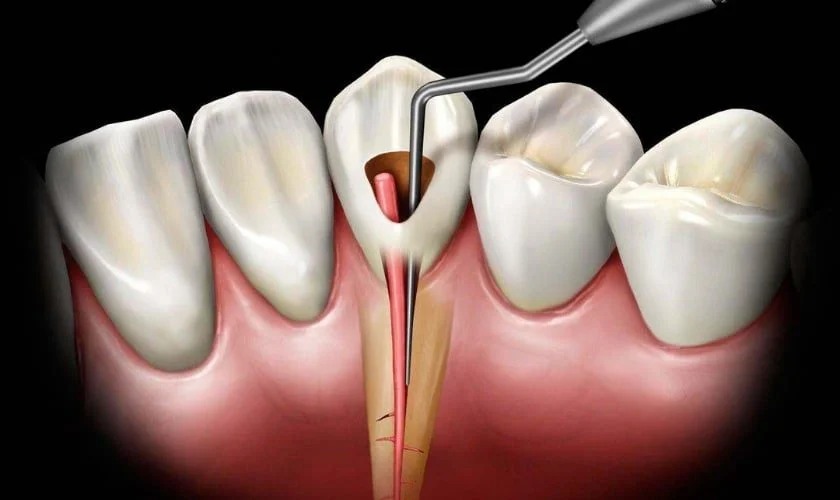The Ultimate Guide to Emergency Dentist Appointments: What You Need to Know
Introduction
Dental emergencies can be both painful and frightening. Whether it's a sudden toothache, a knocked-out tooth, or an unexpected dental injury, knowing what to do and where to go can make a significant difference. In this guide, we'll walk you through everything you need to know about emergency dentist appointments to prepare you for any dental emergency.
Toothache can be very painful
What IS a Dental Emergency?
Before diving into the steps to take, it's crucial to understand what situations require an emergency dentist appointment. Common dental emergencies include:
Severe Toothache: Persistent, intense pain that can’t be eased with over-the-counter painkillers.
Knocked-Out Tooth: Immediate action can often save the tooth if addressed promptly.
Broken or Chipped Tooth: Especially if accompanied by pain or sharp edges.
Lost Filling or Crown: Can lead to discomfort and further damage.
Abscessed Tooth: A serious infection that can cause swelling, fever, and severe pain.
Soft Tissue Injuries: Bleeding or trauma to the gums, lips, or tongue.
Steps to Take During a Dental Emergency
1. Assess the Situation
You should first evaluate how serious the problem is by yourself. For life-threatening conditions, such as severe bleeding or facial trauma, seek immediate medical attention by visiting an emergency room.
2. Call Your Dentist
Contact your dentist as soon as possible. You can call (02) 9558 8988 or email us at info@painfreedentistsydney.com.au to make an emergency dental appointment at Pain Free Dentist Sydney. Our doctor with over 25 years of clinical experience will be happy to help you. When calling, provide clear details about your condition to help the dental staff prepare for your arrival.
3. Manage Pain and Swelling
While waiting for your appointment, you can manage pain and swelling with over-the-counter painkillers like ibuprofen and by applying a cold compress to the affected area.
4. Preserve Any Dislodged Teeth or Fragments
If a tooth is knocked out, gently rinse it without scrubbing and try to place it back in its socket. If that's not possible, store it in a container of milk or saline solution and bring it to the dentist immediately.
Why Immediate Attention is Crucial
Delaying treatment for a dental emergency can lead to more serious issues, including:
Increased Pain and Discomfort: Untreated dental issues often worsen over time.
Infection Spread: Infections in the mouth can spread to other parts of the body, leading to severe health problems.
Permanent Damage: Prompt treatment can save teeth and prevent the need for more extensive procedures.
What to Expect During an Emergency Dentist Appointment
Quick Evaluation
Upon arrival, the dentist will quickly assess your condition to determine the best course of action. This may include X-rays to get a clear view of the problem.
Immediate Treatment
Depending on the issue, the dentist may perform procedures such as pain relief, tooth restoration, or infection control. For severe cases, follow-up appointments might be necessary to complete the treatment.
Aftercare Instructions
Post-treatment care is crucial for recovery. Your dentist will provide detailed instructions on how to take care of your mouth, including any medications to take and activities to avoid.
How to Prevent Dental Emergencies
While not all dental emergencies can be prevented, taking care of your oral health can significantly reduce the risk:
Regular Check-Ups: Visit your dentist regularly for check-ups and cleanings.
Mouthguards: Use mouthguards during sports to protect against injuries.
Good Oral Hygiene: Brush and floss daily to maintain healthy teeth and gums.
Avoid Chewing Hard Objects: Refrain from chewing ice, hard candies, and other hard items that can damage your teeth.
Preventative root canal treatment: Restoring your small decay before it reaches the nerves of the tooth.
Conclusion
Dental emergencies can happen at any time, and being prepared is essential. By understanding what constitutes a dental emergency, knowing the steps to take, and seeking prompt treatment, you can ensure the best possible outcome for your oral health. If you're experiencing a dental emergency, don't hesitate—contact your local dentist immediately for expert care and relief.
For more information or to schedule an emergency appointment, contact us by calling (02) 9558 8988 or emailing us at info@painfreedentistsydney.com.au to make an emergency dental appointment at Pain Free Dentist Sydney today. Your smile is our priority!




